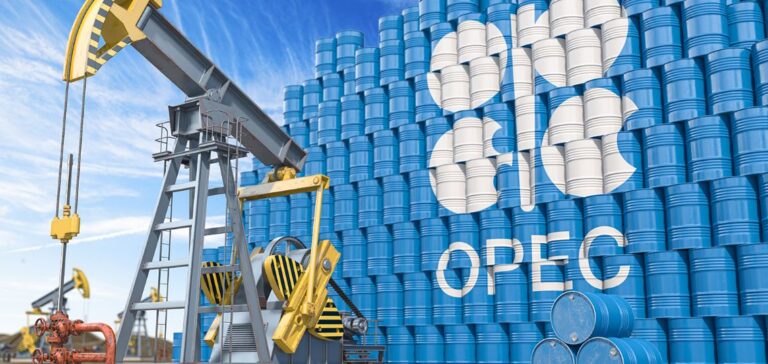Oil prices saw a notable decline this Tuesday, with Brent and West Texas Intermediate (WTI) crude experiencing respective losses of 1.45% and 1.20%. As of 10:20 GMT, the price of Brent crude stood at $70.58 per barrel, a level not reached since last October. WTI, meanwhile, was trading at $67.55 per barrel for April delivery. This drop is attributed to Opec+’s decision (Organisation of Petroleum Exporting Countries and its allies) to maintain its plan for gradual production increases, which was announced in December 2024.
Opec+ decision and its implications for the market
Opec+ stated in a communiqué that the continuation of this plan was justified by “healthy fundamentals and positive market outlooks”. However, the reintroduction of additional oil volumes to the market was seen as a strategic shift for the organisation, which had previously delayed the production increase when Brent prices were below $75. The cartel has planned to gradually reverse the production cuts of 2.2 million barrels per day, starting from April 1, 2025.
Analysts, including Helge André Martinsen and Tobias Ingebrigtsen of DNB, warned that if Opec+ continues on its current trajectory, Brent prices could even fall below $70. They highlighted that Saudi Arabia, Russia, and other key members of the cartel, including Iraq and the United Arab Emirates, would need to be more flexible in order to stabilise prices in the short term.
The role of Russia and Donald Trump
Among the key players influencing this decision, Russia appears to have played a central role. Arne Lohmann Rasmussen, an analyst at Global Risk Management, suggested that Moscow may have pushed for an increase in production to align the country’s energy policies with the geopolitical priorities of Vladimir Putin, particularly concerning Ukraine. Bjarne Schieldrop, an analyst at SEB, mentioned that Russia’s desire to reach a favourable agreement on Ukraine may have facilitated its support for a higher production policy, as requested by the United States.
Donald Trump’s role in this dynamic was also highlighted. During his speech at the World Economic Forum in Davos in January 2025, the former US president expressed his wish for Opec to increase production to lower oil prices and combat inflation, a key issue during his administration.
Trade tensions and their impact on oil demand
Moreover, the introduction of new tariffs by Donald Trump on products from Canada, Mexico, and China has heightened analysts’ concerns about an economic slowdown that could weaken oil demand. These trade tensions, coupled with the increase in production, have contributed to intensifying downward pressure on the price of black gold.






















